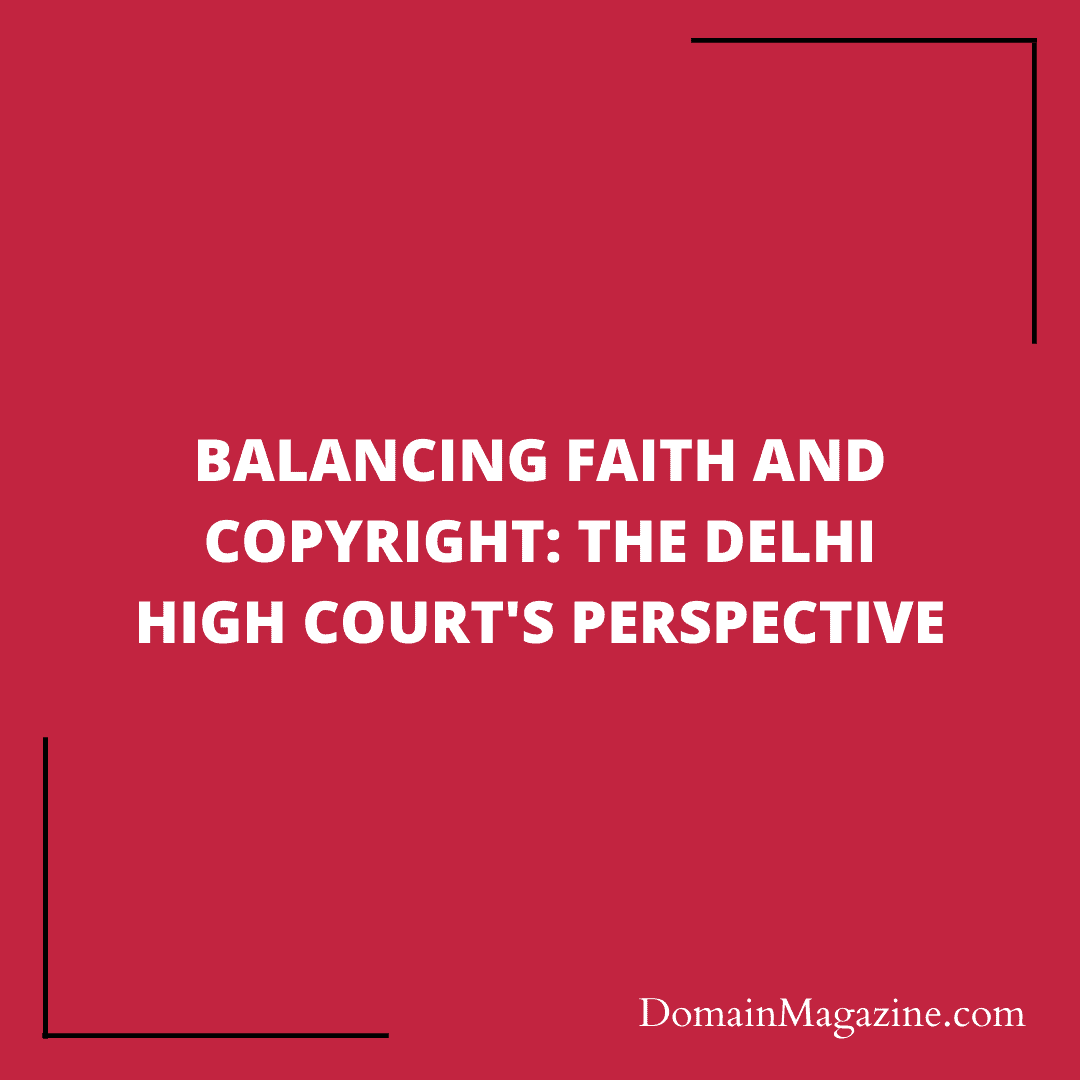In a recent legal development, the Delhi High Court has shed light on a critical issue at the intersection of faith and intellectual property rights. The court’s perspective, articulated in a case involving the Bhaktivedanta Book Trust and its spiritual texts, highlights the delicate balance between religious heritage and copyright protection.

The Case at a Glance
The Bhaktivedanta Book Trust, an organization founded by Srila Prabhupada, the visionary behind the International Society for Krishna Consciousness (ISKCON), found itself embroiled in a copyright infringement lawsuit. The trust claimed that its copyrighted works, based on ancient spiritual texts like the Bhagavad Gita and Bhagavatam, were being unlawfully reproduced and shared on various digital platforms.
Justice Prathiba M Singh, presiding over the case, made a significant distinction: while nobody can assert copyright over the original scriptures, such as the Bhagavad Gita, copyright law does apply to creative adaptations, interpretations, and other original works derived from these texts. This perspective provides a nuanced approach to preserving both faith and intellectual property rights.
The Delicate Balance
At the heart of this matter lies the delicate balance between religious beliefs and the protection of intellectual creations. The court’s ruling emphasizes the sanctity of the original scriptures, acknowledging them as part of the public domain and beyond the scope of copyright.
However, this protection does not extend to the creative works that emerge from these texts. The court recognizes that various Gurus and spiritual teachers interpret and explain these scriptures in unique ways, producing derivative works. These interpretations, adaptations, and even dramatic works are considered original and transformative creations eligible for copyright protection.

Protecting Original Works
The court’s decision underscores the importance of safeguarding original works that contribute to the broader understanding and dissemination of spiritual teachings. When individuals or organizations invest time and effort in creating adaptations and explanations that make ancient texts accessible to a wider audience, they deserve recognition and protection for their intellectual endeavors.
By extending copyright protection to these adaptations, the court encourages creativity and innovation within the realm of spiritual discourse. It ensures that those who devote themselves to translating complex spiritual teachings into relatable content have a legal framework to safeguard their contributions.
The Implications
The implications of this ruling reach beyond the Bhaktivedanta Book Trust case. It sets a precedent for how copyright law can coexist with religious and spiritual traditions, respecting the sanctity of ancient texts while fostering a creative environment for their modern interpretation.
Moreover, this case serves as a reminder of the challenges posed by digital piracy and copyright infringement in the digital age. The court’s decision to issue an injunction and order takedowns against websites and applications involved in copyright infringement underscores the importance of enforcing copyright protections in the online domain.
Conclusion
The Delhi High Court’s perspective on balancing faith and copyright rights provides a thought-provoking framework. It acknowledges the timeless significance of ancient scriptures while affirming the importance of protecting creative interpretations and adaptations. This ruling not only safeguards intellectual property but also fosters a thriving ecosystem where spirituality and creativity can peacefully coexist in the digital age.


Join the Discussion